
Social
11:36, 02-Nov-2017
US lawmakers release sample of Russian-bought Facebook ads
CGTN
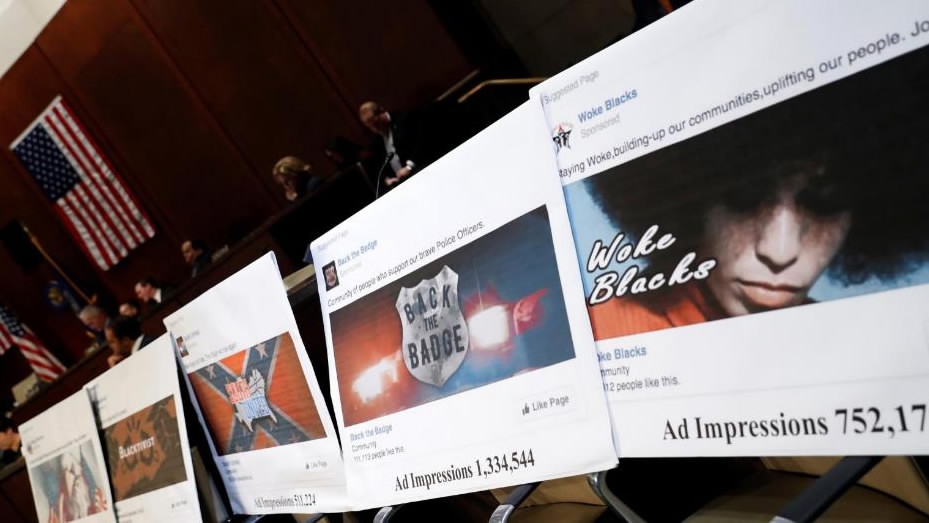
US lawmakers released a batch of Russian-bought Facebook ads on Wednesday that showcased politically charged content allegedly spread on social media by Moscow ahead of the 2016 US election.
Some of the ads criticized candidates, while others sought to organize or promote simultaneous rallies for opposite sides of divisive issues. The sample posted on a House committee website pulled from the roughly 3,000 ads Facebook provided to congressional investigators last month.
Tech companies recently acknowledged that Russia-based content on US politics and social issues like gun rights, immigration, religion and race had spread on their platforms before and after the election.
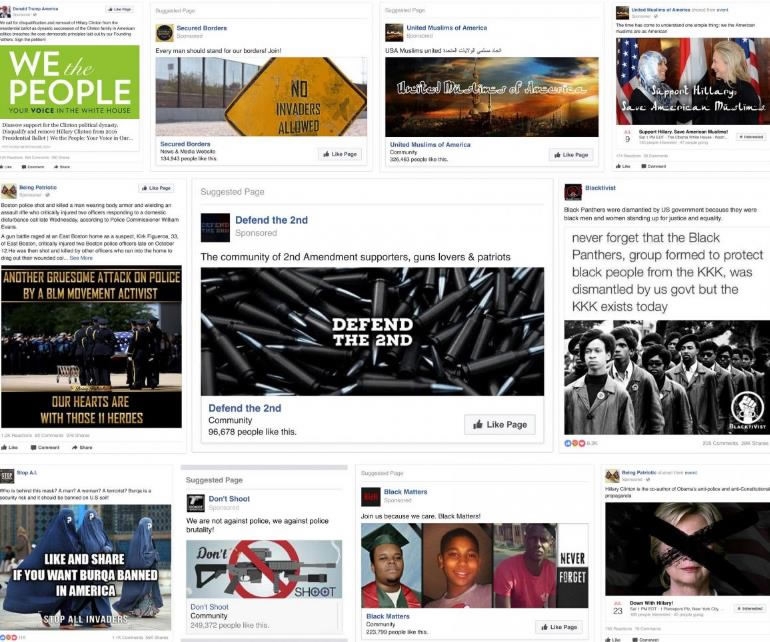
Social media posts /Reuters Photo
Social media posts /Reuters Photo
Some of the ads sampled specifically dealt with the US election and were critical of Democratic candidate Hillary Clinton.
The Russian government has denied any attempts to sway the 2016 election, in which Republican candidate Donald Trump defeated Clinton.
The ads were released at a US House Intelligence Committee hearing, where lawyers from Facebook, Twitter and Alphabet’s Google testified about Russian influence on their networks.
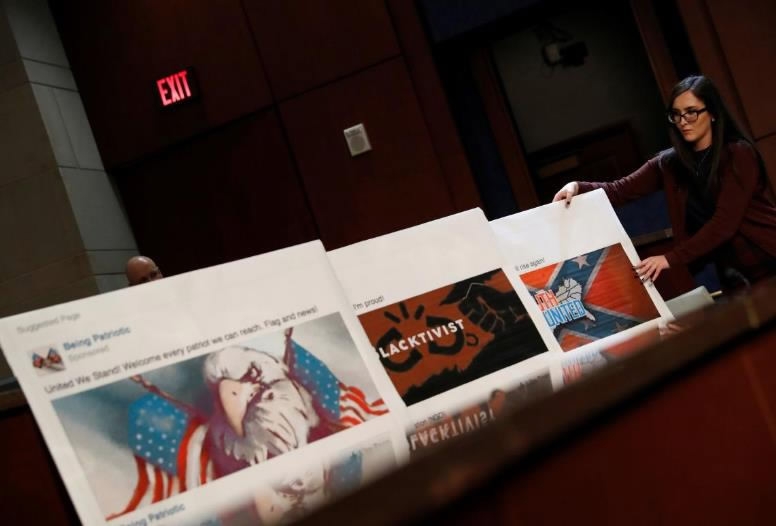
Examples of Facebook pages /Reuters Photo
Examples of Facebook pages /Reuters Photo
It was the second straight day the companies attempted to ward off criticism from lawmakers that they were slow to respond to Russian abuse.
Facebook, again came under the most scrutiny from lawmakers, who expressed frustration with the company because of its role in targeted marketing.
Facebook General Counsel Colin Stretch told the committee that 16 million Americans may have been exposed to Russian information on Facebook’s picture-sharing service Instagram beginning in October 2016. The election was on November 8.
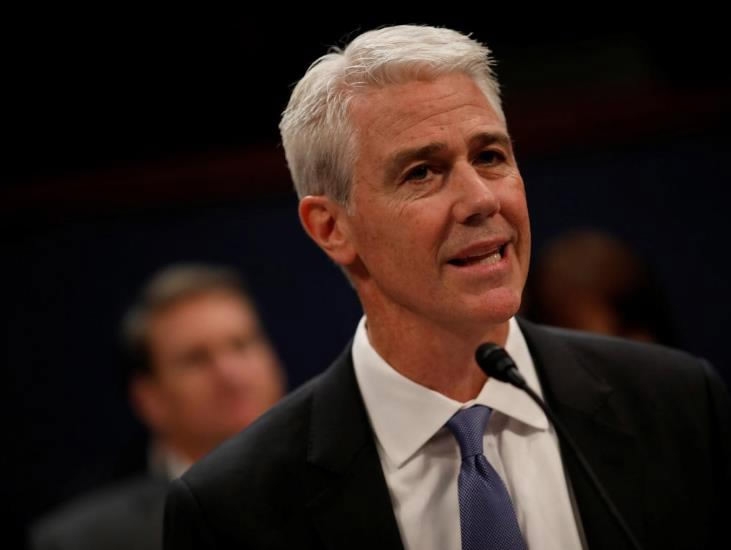
Facebook general counsel Colin Stretch /Reuters Photo
Facebook general counsel Colin Stretch /Reuters Photo
An additional four million may have seen such material on Instagram before October, though that data was less complete, Stretch said.
The Instagram figures were in addition to the 126 million Americans who may have seen Russian-backed political content on Facebook over a two-year period, a number the company disclosed earlier this week.
The companies’ visit to Washington this week reflected shifting political fortunes for the US tech industry, which after decades of relatively little regulatory scrutiny is now on the defensive on a range of policy issues.

Rep. Adam Schiff asks questions, as Facebook executives appear before the House Intelligence Committee to answer questions related to Russian use of social media to influence US election. /Reuters Photo
Rep. Adam Schiff asks questions, as Facebook executives appear before the House Intelligence Committee to answer questions related to Russian use of social media to influence US election. /Reuters Photo
US intelligence agencies have concluded that Russia interfered in the campaign, including through social media, to try to influence the vote in favor of Trump.
A US Justice Department special counsel and several congressional panels are investigating Russian meddling and any potential collusion by Trump’s campaign.
Trump has said there was no collusion with Moscow ahead of the election.
Richard Burr, the Republican chairman of the panel, said it was impossible to measure the impact or know the motivation of the Russian operation to spread political material on social media. Any conclusions that Trump benefited from Russia, perhaps in a decisive way, to win the White House ignored the complexity of the issue, Burr said.
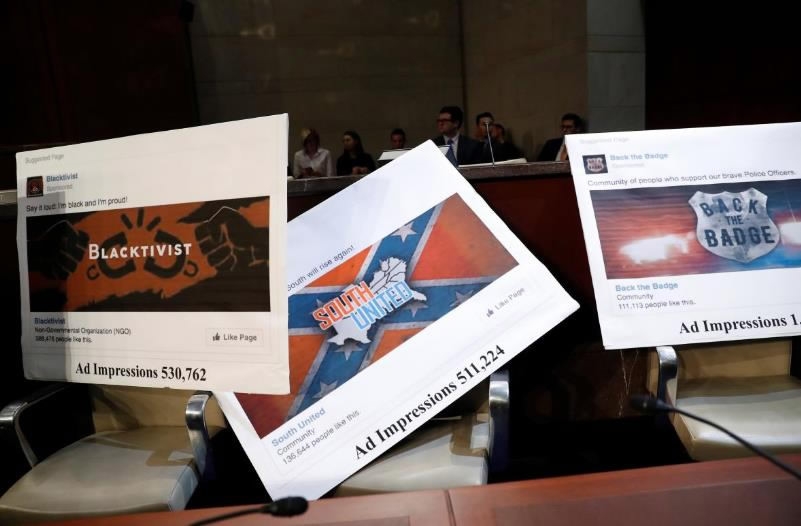
Examples of Facebook pages /Reuters Photo
Examples of Facebook pages /Reuters Photo
Some Republicans also sought to portray the amount of Russian content as miniscule compared to the total amount of political material online.
The campaigns of Trump and Clinton spent a combined 81 million US dollars on Facebook ads, Stretch said, compared to about 46,000 US dollars in ad buys from the Internet Research Agency, a suspected Russian troll farm.
Source(s): Reuters

SITEMAP
Copyright © 2018 CGTN. Beijing ICP prepared NO.16065310-3
Copyright © 2018 CGTN. Beijing ICP prepared NO.16065310-3